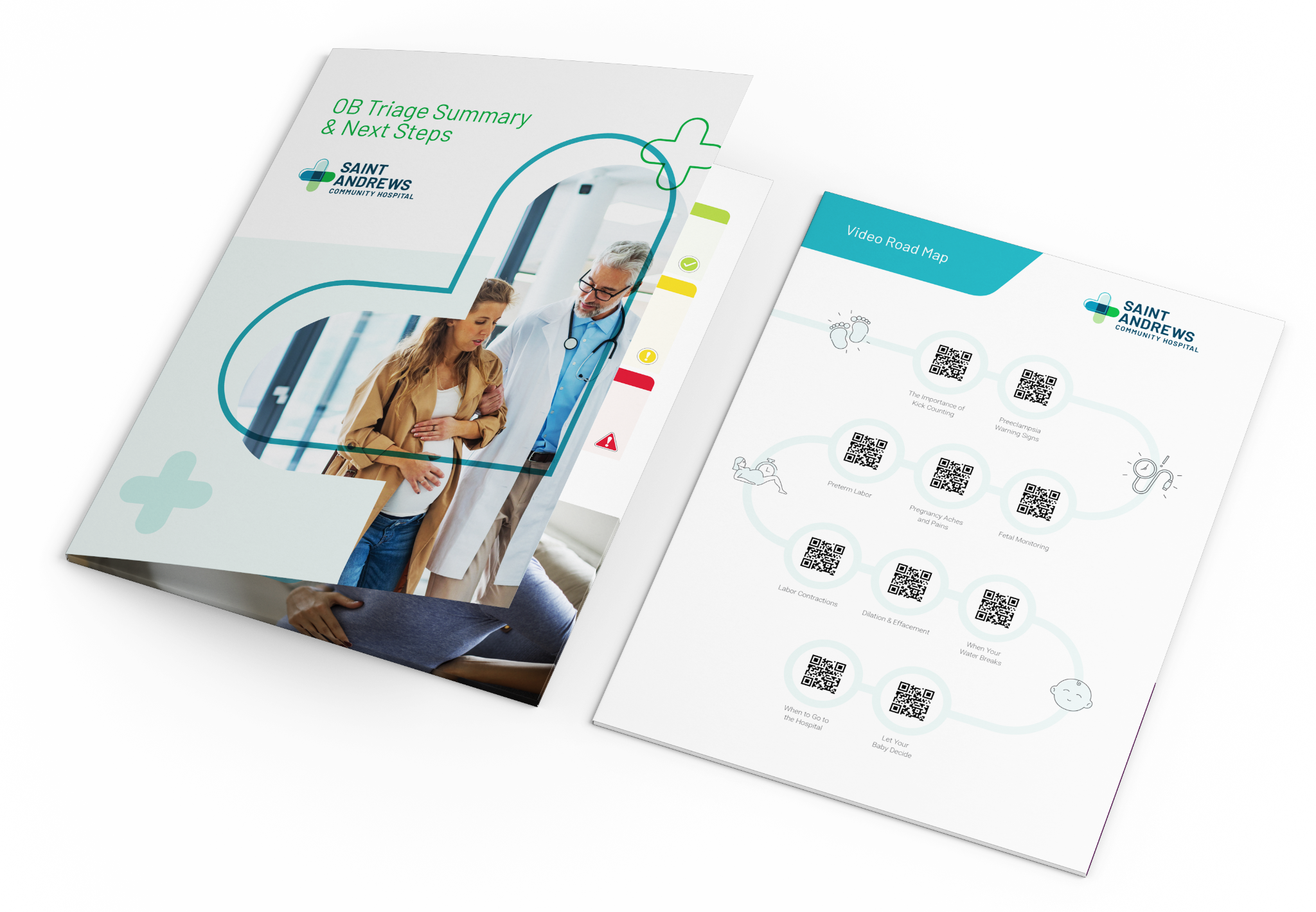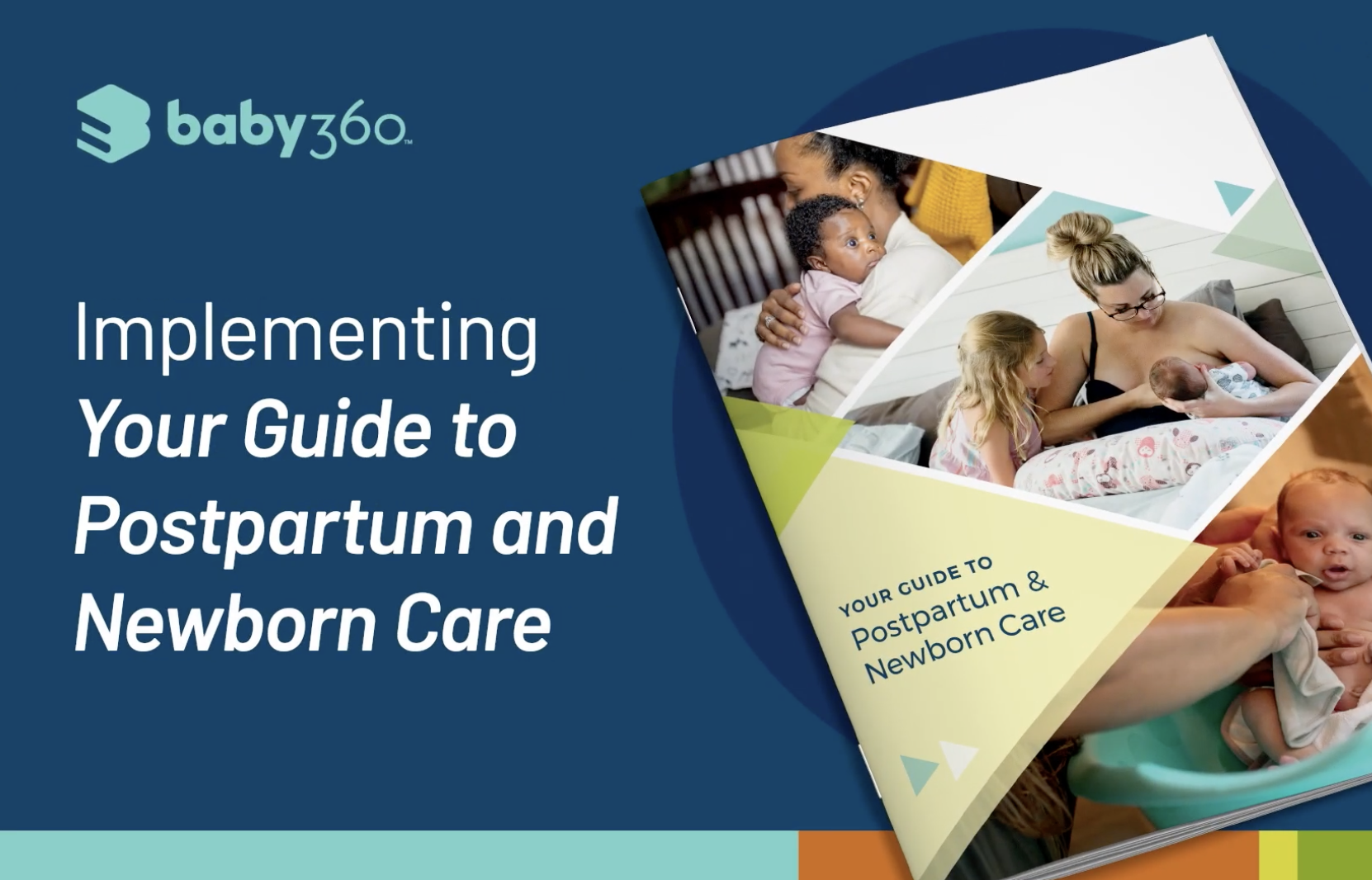Grandma and Grandpa. Mimi and Papa. Nanny and Pop.
No matter what name they want to be called, grandparents come in all sizes, shapes, backgrounds, and ages. Everyone is different. Which is why someone’s first reaction to learning about a new grandbaby can range from dancing for joy—to something closer to uncertainty or fear.
Some grandparents-to-be may have kept up with all the changes and innovations in baby health and safety over the years. Others will need more facts and guidance in order to safely care for their new grandbaby. That’s where you can help.
Preparing grandparents to step into this important new role can be a lot of fun for nurses and educators. While there are plenty of books on the subject, taking a class gives grandparents the opportunity to:
- Ask an expert many different types of questions
- Learn about the latest baby health and safety protocols
- Enjoy interacting with other expecting grandparents
The following sections cover some of the most important health and safety practices that grandparents need to know, plus news about a brand new evidenced-based guide from CCI that can help your grandparenting classes be the best ever.
Updated Safe Sleep Guidelines
The most critical change in baby health and safety guidelines over the years relates to their sleeping position. Historically babies were put on their stomachs to sleep. But in 1994, research confirmed that putting babies to sleep on their backs could lower the risk of suffocation or Sudden Infant Death Syndrome (SIDS).
Although the Centers for Disease Control and Prevention (CDC) estimates that nearly 3,500 infants die suddenly and unexpectedly each year in the U.S., that is a significant drop in the number of SIDS deaths over the last 20+ years.
- Make sure grandparents know when it’s sleep or nap time:
- Always place the baby on their back, by themselves, in a crib or bassinet
- Don’t put any other items in the crib besides the baby
- Keep electrical, window blind, or baby monitor cords away from the crib
- Keep the room temperature between 68°-72° F
- Don’t smoke or let others smoke around the baby
Choosing a Car Seat
The safest place for a grandbaby is securely strapped into a rear-facing car seat. This type of car seat
cradles their head, neck, and spine for extra protection in a frontal crash, the most common type of car crash.
The “best” car safety seat is the one that fits the baby and is installed correctly in the grandparent’s car. It doesn’t matter whether it’s the most expensive seat on the market. If it’s not installed properly, it may not protect the baby.
All infants and toddlers should ride in a rear-facing seat until they reach the highest weight or height allowed by the seat’s manufacturer. Most convertible seats allow children to ride rear facing for two or more years.
As a reminder:
- Today’s car seats actually have an expiration date. This is because as a seat ages the materials may become brittle and break. Remind everyone in your classes to check all car seats for the make, model, manufacture date, and expiration date before using them.
- Cars heat up faster and get hotter than you might think. It’s never safe to leave a baby in a car for even a minute or two. Remind everyone in your classes to “look before you lock” and safely remove the baby from the car before walking away.
Warning Signs and Medical Response
Even experienced grandparents may feel worried as they adjust to a new baby’s habits, needs, and personality. If they have questions or concerns, they should talk with the baby’s parents or call the baby’s health care provider right away.
There are many signs and symptoms that a grandbaby is feeling sick and may need medical care. Most grandparents will recognize the signs of a sick baby the same way they did with their own children. In addition to relying on their prior experience, grandparents should also:
- Keep the phone number of the baby’s health provider close at hand
- Know the Poison Center number (1-800-222-1222) in case the child comes in contact with a harmful substance
- Know the location of the nearest urgent care facility and pediatric emergency room
- Obtain an authorization for medical consent so they can give permission for medical care if the parents aren’t present
- Know to call 911 immediately if the baby has blue lips, difficulty breathing, is turning blue, or is in another type of acute distres
Long Distance Grandparenting
In a perfect world, grandparents would live nearby and it would be easy to communicate with the new grandbaby. But sometimes that just isn’t possible. Or maybe, they live in a different town, state, or even country. Or maybe, as in the case of the COVID-19 pandemic, it just isn’t safe to be physically close to other people for a period of time.
That’s where modern technology can be very helpful. Having internet access makes it easy for grandparents to have virtual visits with the new parents and baby. This includes face-to-face video chat sessions that let everyone see as well as hear each other. Because not every new grandparent is a technology wizard, exploring different communications options can be very helpful. There are many new products out there designed especially for seniors.
But modern technology isn’t the only way to stay close. When babies are a little older, talking by phone is an easy way to keep up with what’s important in their grandchildren’s lives. Children of all ages also love to receive handwritten letters, greeting cards, and presents from their beloved grandparents. What’s important is not how grandparents stay in touch with the family—but that they find a way that works for everyone
NEW! Introducing Your Guide to Grandparenting

At CCI, our goal is to provide nurses and educators with up-to-date, evidence-based materials to help them teach parents – or in this case, grandparents – the essential skills they need to be successful. Your Guide to Grandparenting is our newest eBook and we invite you to preview the eBook here.
This new guide includes much of the same information taught to new parents in their classes. It is designed to prepare grandparents to become informed advocates for the newborn baby and the baby’s family. It also includes easy access to helpful videos on the CCI Scan + Play App, a resource list to encourage additional reading, and a glossary to help define any unfamiliar terms.
You can preview all of our eBooks when you sign up for a free 7-day trial to readED, CCI’s eBook platform. Call us with any questions at (800) 476-2253. We look forward to connecting with you!



